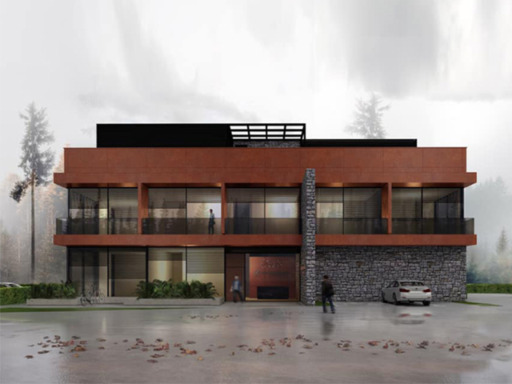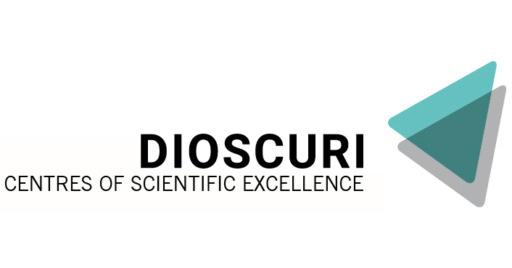


 The NEBI Project - National Centre for Advanced Analysis of Biological and Biomedical Imaging, obtained under the Intelligent Development Operational Programme, aims to create the National Centre for Advanced Image Analysis in Biological and Biomedical Sciences - an advanced IT infrastructure for data collection and processing, and to create a state-of-the-art integrated platform for multidimensional imaging of biological processes that are crucial for appropriate functioning of the organism as well as underlying civilization diseases.
The NEBI Project - National Centre for Advanced Analysis of Biological and Biomedical Imaging, obtained under the Intelligent Development Operational Programme, aims to create the National Centre for Advanced Image Analysis in Biological and Biomedical Sciences - an advanced IT infrastructure for data collection and processing, and to create a state-of-the-art integrated platform for multidimensional imaging of biological processes that are crucial for appropriate functioning of the organism as well as underlying civilization diseases.
To enable the implementation of the project, a modern research building will be built at the Research Station of the Nencki Institute in Mikołajki. The new building will house 3 laboratories: Laboratory of Modelling and Visualization of the Dynamics of Complex Biological Processes, Laboratory of Biological and Biomedical Imaging with High Passage Techniques and Laboratory of Imaging of Structures and Functions of Cells and Tissues with High Passage Techniques, as well as a server room, along with IT and telecommunication facilities.
The new infrastructure will be available to users from all over the world both, scientists and commercial partners. Implemented solutions allowing for controlled and shared access to generated data, will fully support the remote analysis and processing of data from high-resolution microscopes, high-pass research equipment, and computational experiments.
 BRAINCITY - Center for Neural Plasticity and Brain Disorders was established at the Nencki Institute by Prof. Leszek Kaczmarek and Ewelina Knapska, PhD - winners of the International Research Agenda (MAB) programme run by the Foundation for Polish Science (FNP). It includes 5 Research Laboratories, whose leaders will work on their own scientific projects in accordance with international research standards.
BRAINCITY - Center for Neural Plasticity and Brain Disorders was established at the Nencki Institute by Prof. Leszek Kaczmarek and Ewelina Knapska, PhD - winners of the International Research Agenda (MAB) programme run by the Foundation for Polish Science (FNP). It includes 5 Research Laboratories, whose leaders will work on their own scientific projects in accordance with international research standards.
The MAB programme has been implemented by the FNP since November 2015 with funds from the Intelligent Development Operational Programme (OP IR). The programme is to enable the establishment of specialised scientific centers in Poland, conducting globally competitive scientific research.
The research challenge for BRAINCITY is to understand and use the complex plasticity of the brain to combat diseases. For such a complex project to be possible, close cooperation between research communities specializing in various scientific, clinical and industrial fields is necessary. Such interdisciplinarity and the pooling of the efforts of different groups will allow a higher level of knowledge of brain functions and dysfunctions and the rapid introduction of research innovations to the market. Importantly, BRAINCITY will build on long-term strategic cooperation with the European Molecular Biology Laboratory, which is a highly regarded, world-class scientific institution and leader in research, training and technology transfer in the life sciences.
 Two (first in Poland) DIOSCURI Centers were established at the Nencki Institute. The winners of the first competition for DIOSCURI Centres were dr Aleksandra Pękowska, who established the Centre for Chromatine and Epigenomics Biology, and dr Grzegorz Sumara, head of the Centre for Metabolic Diseases.
Two (first in Poland) DIOSCURI Centers were established at the Nencki Institute. The winners of the first competition for DIOSCURI Centres were dr Aleksandra Pękowska, who established the Centre for Chromatine and Epigenomics Biology, and dr Grzegorz Sumara, head of the Centre for Metabolic Diseases.
The main subject of the research of the Centre of Chromatin and Epigenomics Biology is the identification of genetic basis for the functioning of astrocytes as well as changes in genome, which are responsible for evolutionary modification of astrocyte biology.
The Centre for Metabolic Diseases focuses on the study of lipolysis regulation by different classes of signal molecules and the influence of specific signal modules on the development of obesity, type 2 diabetes and cachexia.
The Dioscuri programme was created on the initiative of the Max Planck Society and its aim is to establish Central and Eastern Europe research teams capable of competing effectively in the international arena. The first competition for the creation of Dioscuri Centres was announced in Poland in cooperation with the National Science Centre (NCN) and was financed by the Polish Ministry of Science and Higher Education and the German Federal Ministry of Education and Research. Each newly established Centre will cooperate with a so-called mentoring unit - i.e. a university or research institution in Germany.

